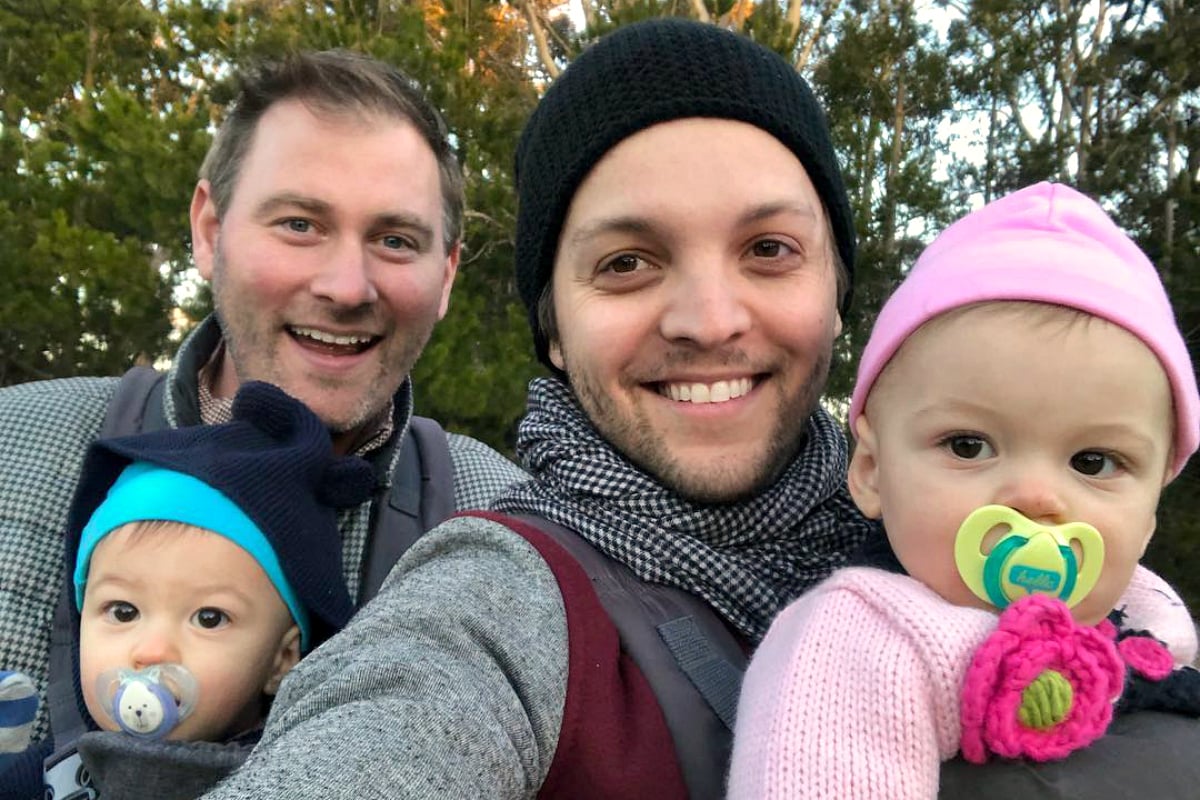
In September 2017, Sean and Josh Szeps walked out of a Minneapolis hospital with their beautiful newborn twins, Stella and Cooper, buckled into their car seats. With the help of two selfless women, the couple had created their perfect “instant” family. But in Josh’s native Australia, the way these little babies were brought into the world is against the law.
Speaking to Mamamia‘s No Filter podcast, Josh, a host on ABC Radio National, explained that he and his American husband’s children were born via a commercial surrogacy arrangement; in other words, the woman who carried their children was financially compensated. The couple, who were living in Los Angeles at the time, sought her services via a boutique surrogacy agency.
“Here in Australia surrogacy of the kind that we did is illegal,” Josh told No Filter host Mia Freedman. “I mean, we could be jailed for doing what we did here.”
Under Australian law, only ‘altruistic surrogacy’ is permitted, meaning the surrogate can’t receive any financial gain from the arrangement.
“In certain states in the United States, that’s not the case,” Josh continued. “So it’s a lot easier and more accessible, and it’s better set up.”
How Josh and Sean’s surrogacy arrangement unfolded.
Though Josh was open about his desire to start a family, it wasn’t always a consideration for Sean. But when they got married in 2014, something changed.
“We all grew up in a time where being gay meant you wouldn’t have children. I didn’t know a single person who did,” Sean said. “But [after the wedding] the tables had turned because I realised that I had put limitations on myself because of what I thought was possible.”
Top Comments
Please watch the documentary '#BigFertility', produced by Jennifer Lahl, in order to understand both sides of the surrogacy story